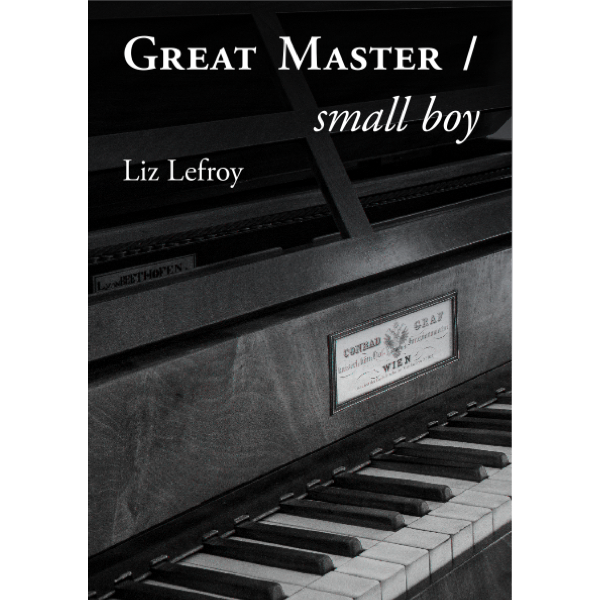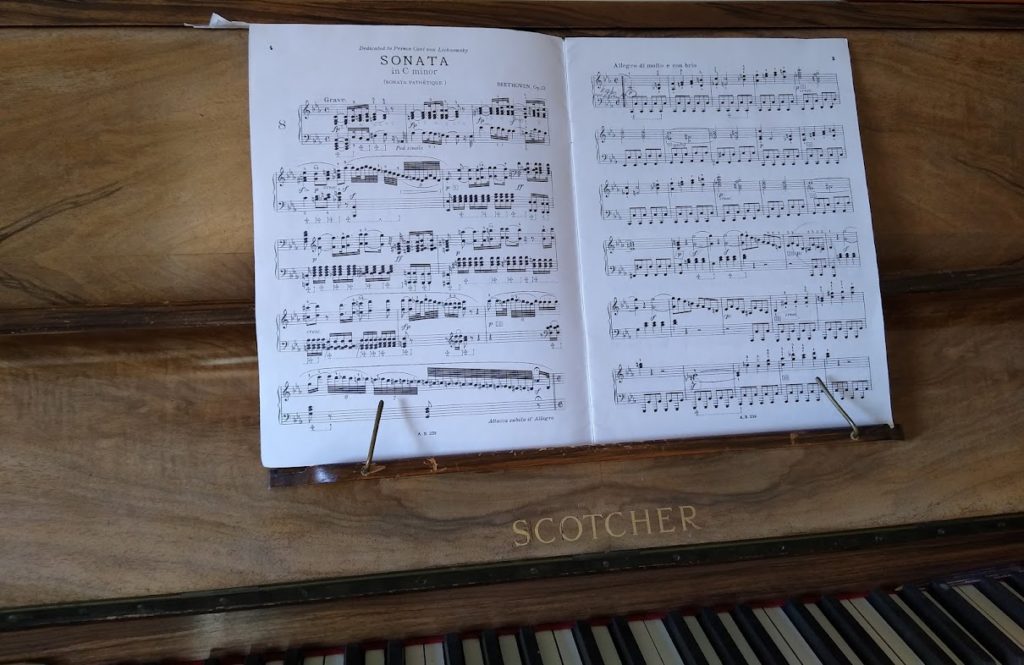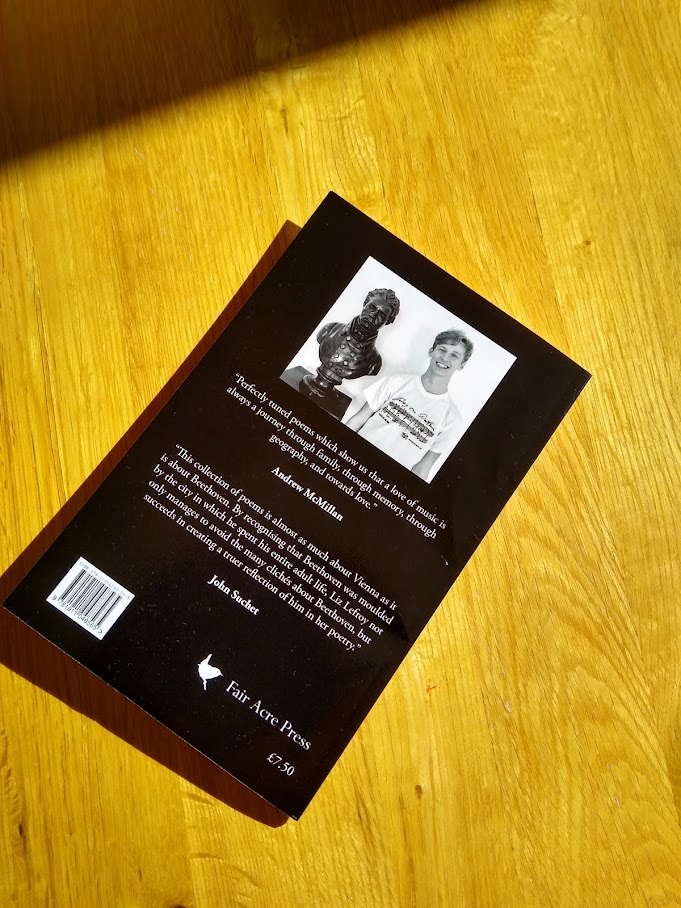Book Review – August 2021
In the summer of 2018 Liz Lefroy and her son, Jonty, took a trip across central Europe. They visited Bonn and Vienna on the trail of art, architecture, history and sachertorte. They were also searching for Ludwig van Beethoven, which was why they chose to visit these particular two cities. Beethoven was born in Bonn and moved to Vienna at the age of 21 where he lived until his death in 1827.
Image © Beethoven-Haus, Bonn
In Bonn, formerly the capital of the West German corporate state, they find echoes of past Cold War tensions behind the city’s polite, bourgeois exterior.
Before Vienna, Bonn: an insignificant-enough city,
once fitted out for purpose as a temporary capital,
now shrunk, side-lined as a cold war interval.[1]
Beethoven, the small boy destined to become a great master, was reputed to be glad to leave behind his childhood and his drunken, overbearing father. Vienna, meanwhile, shimmers in the summer heat of 2018:
This city’s a miniature of empire – a lavish
half-continent heated up, compressed into stone.[2]
This new collection of poems by Liz Lefroy is inspired by that trip. It comprises a series of short, linked pieces describing a mother and son’s quest in search of the great composer. The poems describe their physical journey, taking time to explore present-day Bonn and Vienna looking for echoes of Beethoven’s life in both cities. For Liz this is also a temporal journey, a very personal one, casting her mind’s ear and eye back to her childhood and memories of her mother, a talented pianist:
I’m grateful I saw my mother at the piano,
her hair unpinned, her eyes brilliant with joy.[3]
Image © Bobby Seal
Liz is now a mother herself and Jonty, at the time of this journey, is eighteen. But she recalls the time just before he was born, establishing the corporeality of the process in just a few crafted phrases:
I’m in labour in the bath.
I’m a whale,
a ship in full sail
beached on the rounded island of myself [4]
Liz’s mother inspired Liz’s love for the music of Bach, a love which she passed on to Jonty, who also turned out to be a talented musician. But, for Jonty, the exalted position of Bach was usurped once he discovered the music of Beethoven.
Bach’s music sits in me like a torch, and I passed
it on to you, which means I became momentarily
lost for words the day we were in the car listening
to Beethoven, and you handed Bach back[5]
At which point, perhaps, this European pilgrimage became inevitable.
There and then I switched track, toppled Bach a little,
promised to help you search for Beethoven.[6]
Like Beethoven’s quest for perfection, their search ends in Vienna. This beautiful, cultured and cosmopolitan city, where dark memories of anti-semitism and the Holocaust are never very far away. They visit Beethoven’s former apartment at 18a Pasqualatihaus.
This is the birthplace of four symphonies, the violin concerto,
A clutch of quartets, his only opera, Fidelio [7]
They also learn, from a small card on one wall, that a Jewish family were living in this flat up to 1939 when they were forcibly expelled by the Nazis. The two children, Hedwig and Clara, managed to escape to England by the Kindertransport and later settled in the USA. The parents, Josef and Josefine, however, were sent to Auschwitz where they were murdered in 1944.
Josef and Josefine.
Hedwig and Clara.
I read to your end.[8]
Image © Bobby Seal
Dark memories, it seems, lurk everywhere. Liz and her son spend their last evening in Vienna at a jazz club.
Harri Stojka gypsy swing guitarist is playing tonight
at Vienna’s oldest jazz club
His music is joyful but, as Harri tells his audience:
by 1945 only six
of the two hundred of his family still lived[9]
This is a beautifully presented pamphlet which, to complete the family enterprise, was designed by Liz’s other son, Gabriel. It is not just a collection of poems. There is a unity here, an integrity that brings together the seemingly disparate elements of Liz, her family, Beethoven and central Europe. There is music in her words.
It’s a hollowed space, a refuge, place of hope
which shows us all our losses. It’s where I go
when I exhaust the words for love and sorrow.
It’s music.[10]
Quotations from the Poems




I was so pleased you sent this inciteful piece on Liz Lefroy’s pamphlet which I have not long finished reading. A poem a day at breakfast, then time to ponder each. A haunting, many layered, personal set of poems linking people, places and memories in a way I found completely involving. It will stay with me
Thanks Maureen. I agree wholeheartedly with your ‘haunting, many layered personal set of poems linking people, places and memories in a way I found completely involving’ comments!
Thank you Bobby – lovely to be so closely read and understood.
Thanks Liz. It’s a lovely collection of poems and it richly rewards subsequent readings.